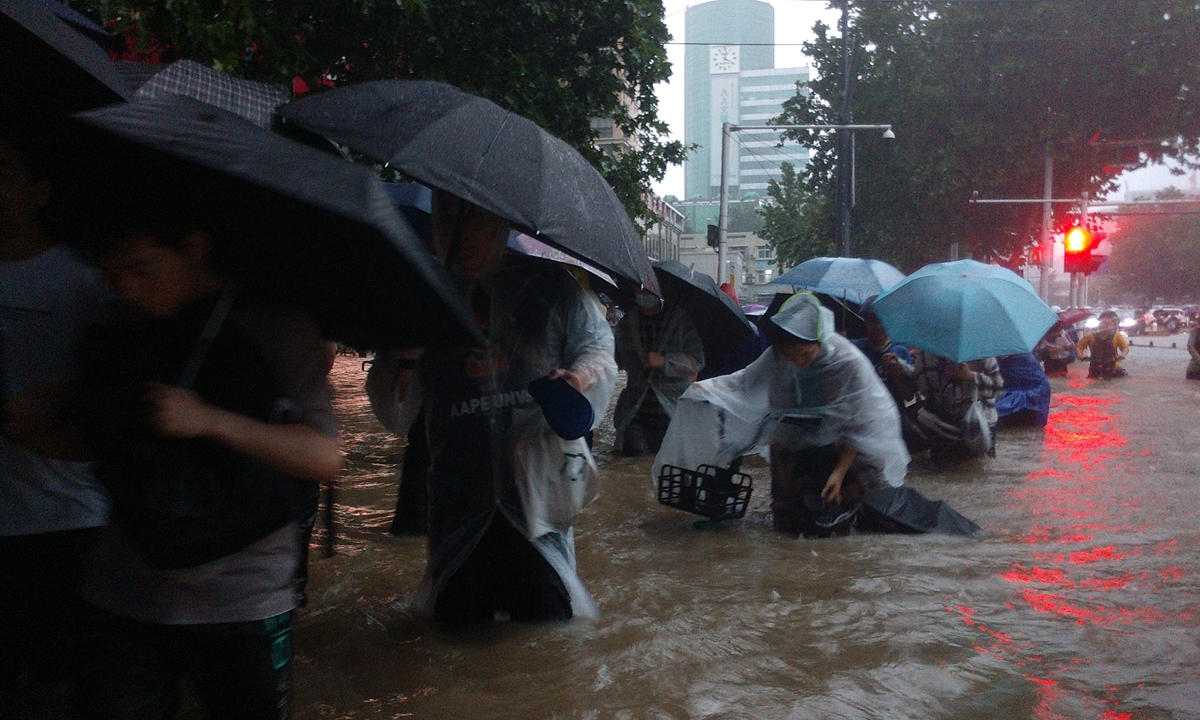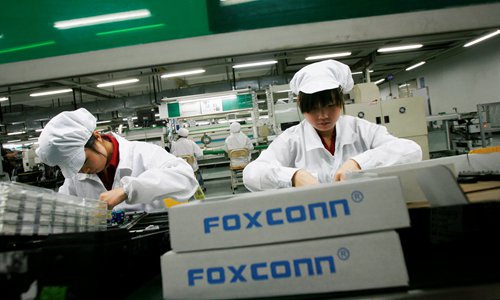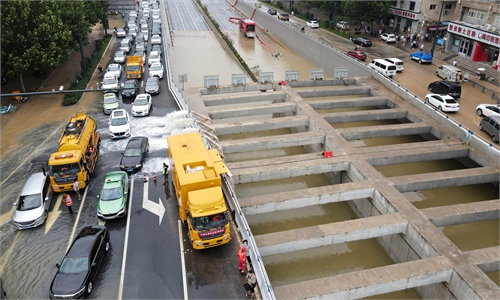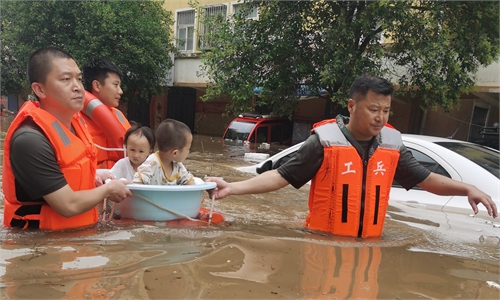Zhengzhou factories resume operations, but shipping issues may delay iPhone 13 delivery

Zhengzhou photo:IC
Factories in Zhengzhou, the capital of Central China's Henan Province, have gradually resumed operations as the impact of floods - caused by the city's heaviest downpour in 60 years - eased. Zhengzhou, home to the world's largest iPhone factory and one of China's largest auto manufacturing bases, is gradually shaking off disruptions as electricity and internet connection returned. Yet logistics continue to pose a threat to shipments, potentially affecting supply chains at home and abroad.
The Global Times learned that two major industrial parks of Foxconn in Zhengzhou have resumed operations on Friday. Another one in Zhongmu town, which manufactures personal computer connectors, has not resumed work as it suffered the most extensive damage.
A Zhongmu-based Foxconn employee told the Global Times on condition of anonymity that "most workers trapped in factories and dormitories in the county have been rescued so far, but we were not informed on when we could return to work."
At the peak of flooding, water levels in the Zhongmu industrial park reached neck-high, and about 1,000 employees were stranded in their dormitories. Water and electricity were cut off. And equipment and machines were flooded, news website jiemian.com reported.

Employees work at a Foxconn factory in the township of Longhua, South China's Guangdong Province File photo: VCG
Foxconn's Zhengzhou factory produces half of the iPhones in the world with 90 production lines, three plants and around 350,000 workers. And it has received the bulk of orders for Apple's new iPhone 13, which is expected to be launched in September, according to media reports."The flood's impact on the major manufacturing base for smartphones is limited, and there are only puddles outside the industrial park," a source close to Foxconn told the Global Times on Friday.
Zhengzhou's 100 billion yuan ($15.4 billion) auto industrial cluster is also on track to recover, with about 90 percent of local public transportation restored as of Thursday night, industry insiders said.
Yutong Group Co., a Zhengzhou-based large passenger carmaker which accounts for 10 percent of the city's car production capacity, resumed work on Friday after halting for two days, an employee with the brand department of the company surnamed Chen told the Global Times.
During the heaviest rainfall, water seeped into the company's plant, but has since been cleaned up, Chen said.
Another carmaker, Haima Motors, has also gradually resumed operations after electricity was cut off for two days, the Global Times learned. But the factory has not been able to run at 100 percent capacity due to unstable communication, a customer service staff of Haima Motors told the Global Times on Friday.
But industry observers pointed out that compared with catching up on production, shipping iPhones and auto parts could create the biggest headache for local firms, as major transportation routes throughout the city were still partly cut off and could take a long period to return to normal.
This will likely cause a delay in the production of the iPhone 13 series and lead to a shortage of auto parts in downstream auto industries in the short term, analysts said.
"Transportation logistics should give priority to the delivery of materials related to people's livelihood and passenger transport, and the transportation of auto parts may not fully resume in the near future," Su Hui, a senior car industry analyst told the Global Times on Friday.
He expects auto plants to fully recover in the third quarter.


